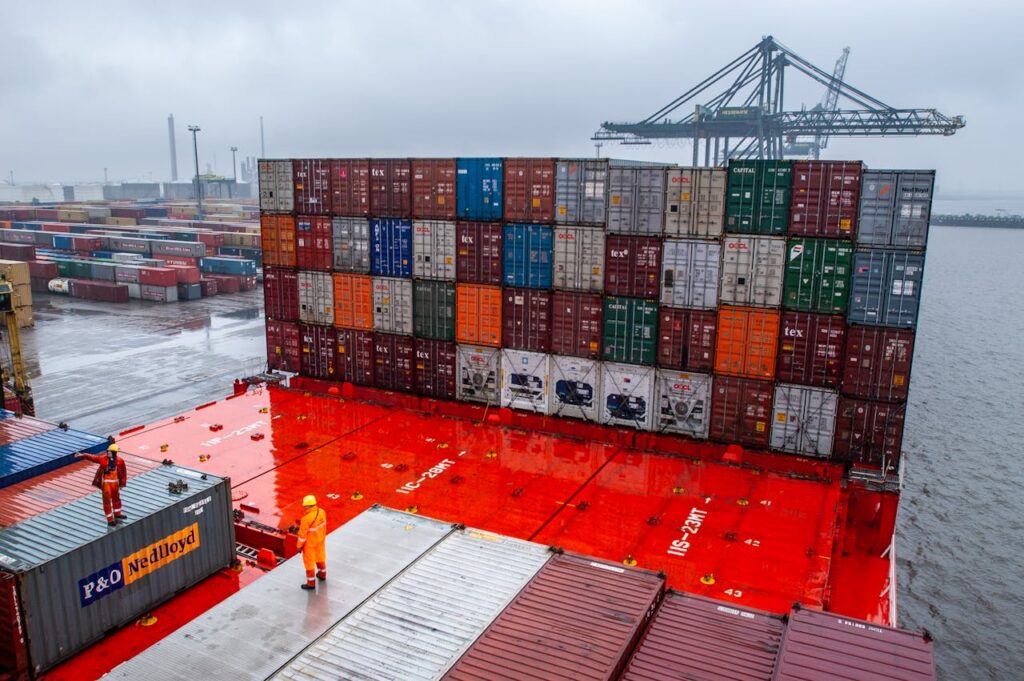IITHE Level 4 Diploma in Logistics and Supply Chain Management

Overview
The IITHE Level 4 Diploma in Logistics and Supply Chain Management is designed to provide learners with a thorough understanding of the principles and practices involved in logistics and supply chain management. This qualification covers key areas such as supply chain strategy, logistics operations, inventory management, and procurement. It prepares students for roles in managing and optimizing supply chain processes, with a focus on improving efficiency and reducing costs in various industries.
Entry Requirements:
- Typically aimed at learners aged 18 and above.
- Entry profile may include:
- Relevant Level 3 qualification in Logistics, Business, or related fields, or equivalent qualifications
- GCE Advanced Level in relevant subjects or equivalent qualifications
- Relevant work experience or practical knowledge in logistics and supply chain management (verification with the center may be required)
English Requirements: Learners from non-majority English-speaking countries must provide evidence of English language proficiency. For more information, please refer to our English Language Requirements page.
Qualification Structure: The Level 4 Diploma in Logistics and Supply Chain Management consists of 12 mandatory units, totaling 240 credits, with 2400 Total Qualification Time (TQT) hours and a minimum of 1200 Guided Learning Hours (GLH).
Mandatory Units:
- Principles of Logistics and Supply Chain Management (20 Credits)
Fundamental concepts and processes of logistics and supply chain management, including key principles and strategies. - Supply Chain Strategy (20 Credits)
Development and implementation of supply chain strategies to enhance efficiency, responsiveness, and competitive advantage. - Logistics Operations Management (20 Credits)
Management of logistics operations, including transportation, warehousing, and distribution. - Inventory Management (20 Credits)
Techniques for managing inventory effectively, including stock control, forecasting, and demand planning. - Procurement and Supplier Management (20 Credits)
Principles and practices of procurement, including supplier selection, contract management, and relationship management. - Supply Chain Risk Management (20 Credits)
Identification, assessment, and management of risks within the supply chain to ensure continuity and mitigate disruptions. - Global Logistics and Supply Chain Management (20 Credits)
Understanding of global logistics and supply chain practices, including international trade, regulations, and cultural considerations. - Technology in Supply Chain Management (20 Credits)
Utilization of technology and information systems in supply chain management, including software solutions and data analytics. - Sustainability and Ethical Practices in Supply Chain Management (20 Credits)
Exploration of sustainable and ethical practices within the supply chain, including environmental and social responsibility. - Financial Management in Supply Chain (20 Credits)
Financial aspects of supply chain management, including budgeting, cost analysis, and financial planning. - Project Management for Supply Chain (20 Credits)
Project management techniques and practices relevant to supply chain projects, including planning, execution, and monitoring. - Leadership and Management in Logistics (20 Credits)
Skills and strategies for effective leadership and management within the logistics and supply chain sector.
Duration and Delivery:
- Duration: Typically completed over one academic year for full-time learners, with flexible options for part-time or distance learning.
- Delivery Methods: The course is delivered through face-to-face lectures, practical workshops, tutorials, and online learning through approved centers.
Assessment and Verification:
- All units are internally assessed by the institution and externally verified by the relevant accrediting body.
- Assessments are criterion-referenced, focusing on achieving the specified learning outcomes.
- Assessors provide a detailed audit trail to demonstrate learners’ fulfillment of assessment criteria.
Progression Opportunities:
Upon completion of the IITHE Level 4 Diploma in Logistics and Supply Chain Management, learners can progress to:
- IITHE Level 5 Diploma in Logistics and Supply Chain Management
- Bachelor’s degree programs in Logistics, Supply Chain Management, or related fields.
- Professional roles in logistics and supply chain management, including positions in operations management, procurement, inventory management, and supply chain planning.
